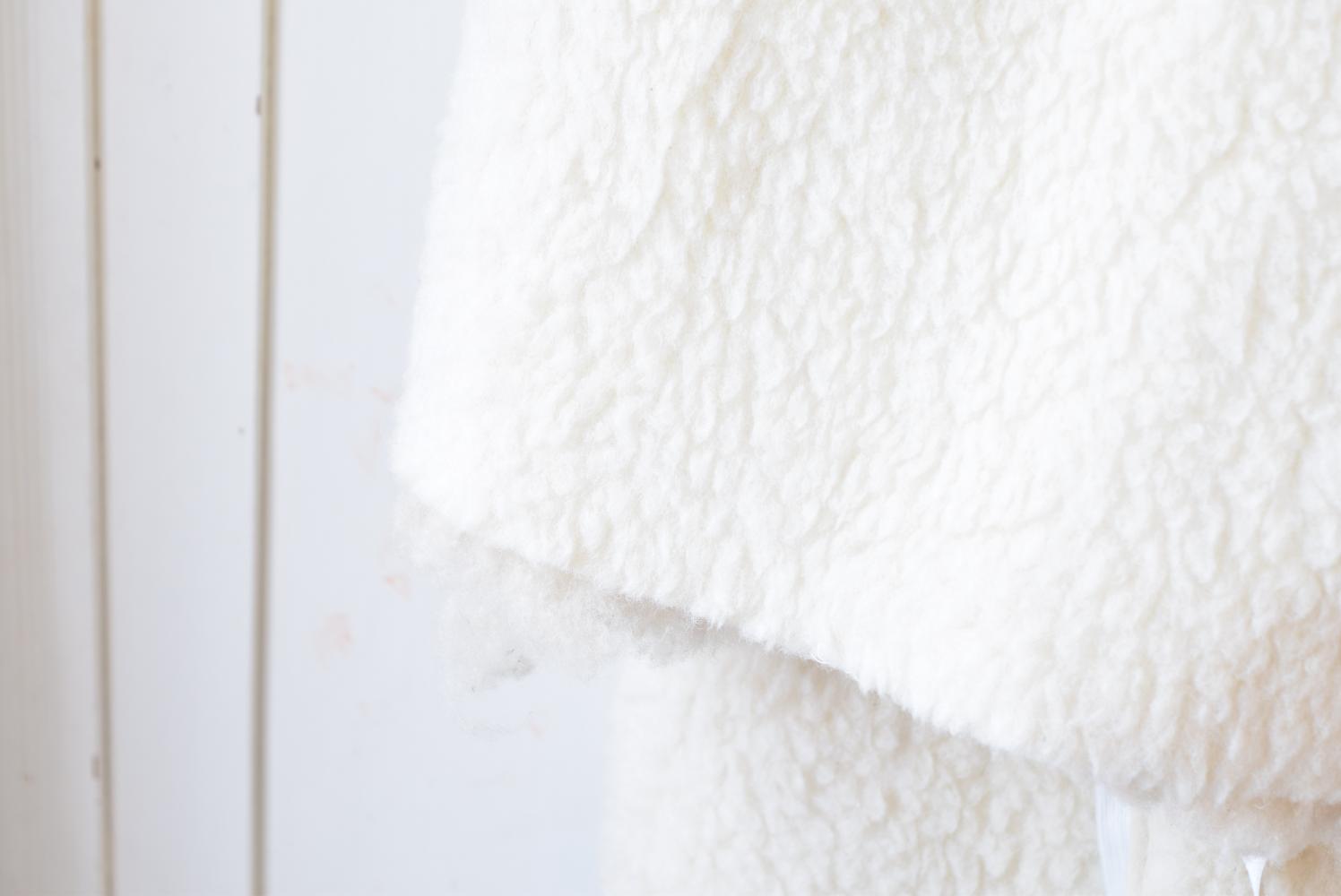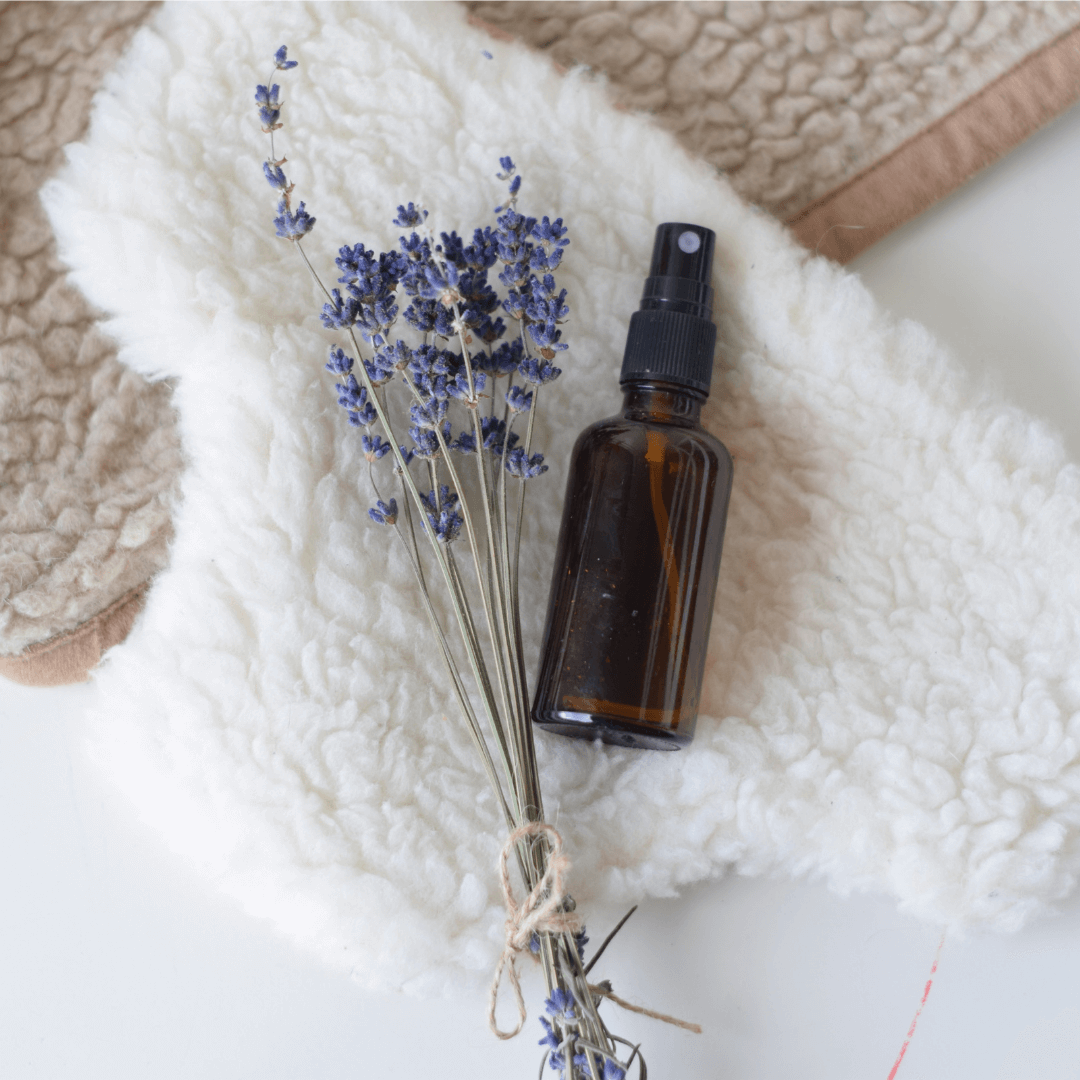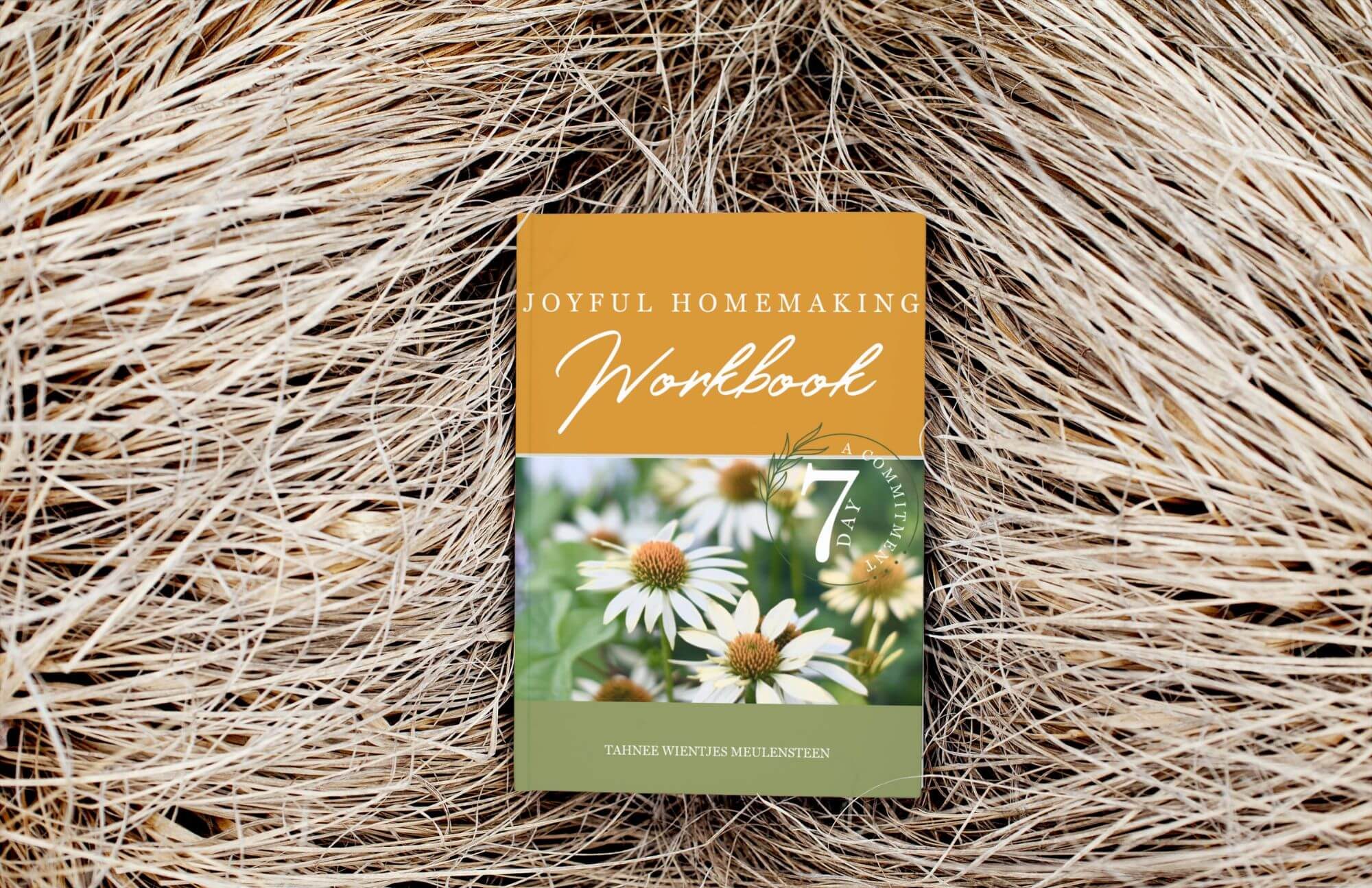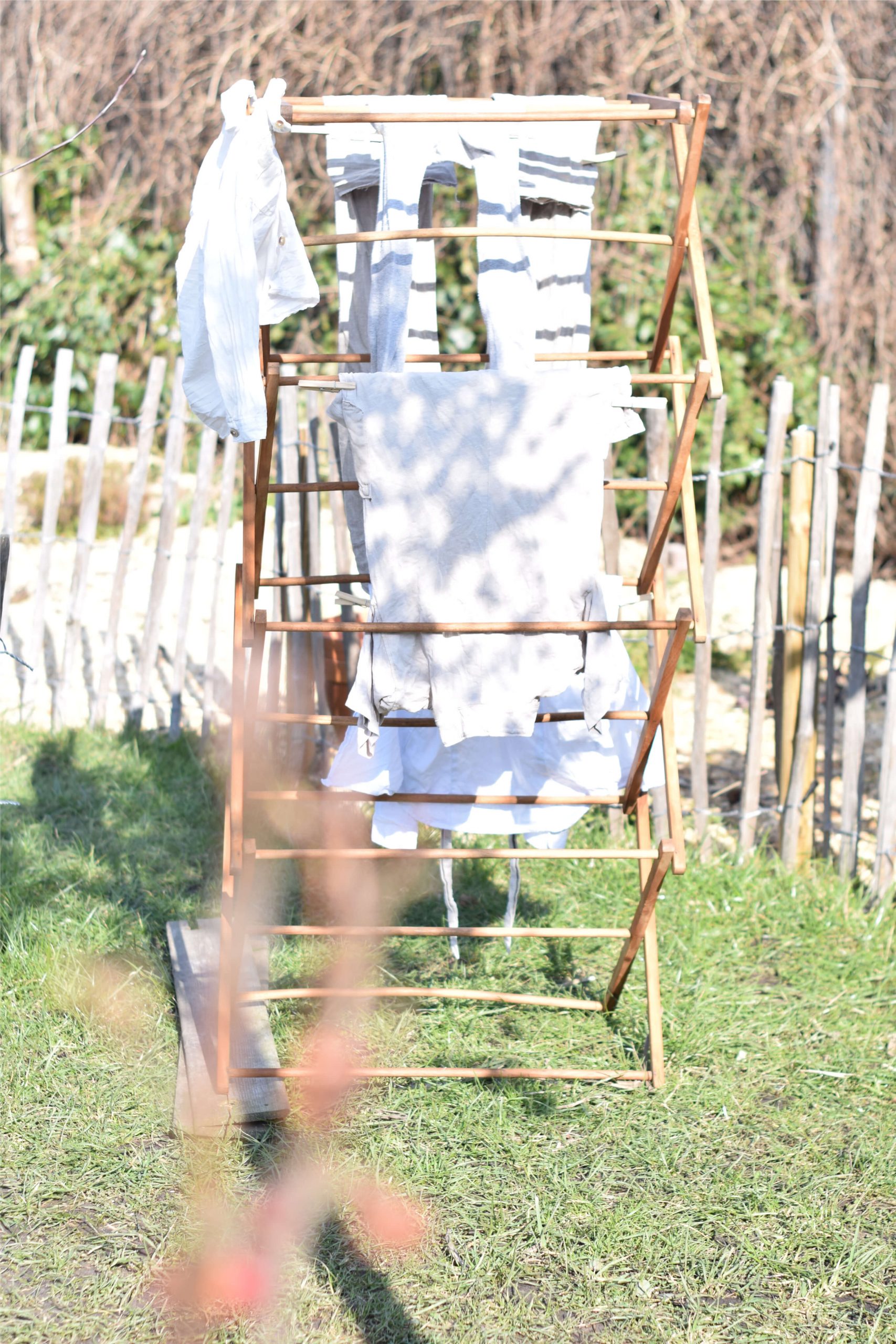
Written by: Tahnee Wientjes
Whether you love the outdoors and need a Pendleton wool blanket to spend the evening near the campfire or you like a cozy wool blanket on your place to rest. Wool is a great material, with great attributes.
This post may contain affiliate links. That means I make a small commission for purchases made through these links, at no extra cost to you. All opinions are my own. You can read my full disclosure here.
Table of Contents
About wool blankets
Contrary to popular belief, wool is not difficult to wash, and taking your wool blanket to the dry cleaner is not necessary.
Wool blankets can be washed at home. But, you do need to take proper care of your wool items.
The best way to wash a wool blanket is in cool water on a gentle cycle, either by hand or in the washing machine on a wool cycle. But, there’s more to taking special care of your wool blanket. A few simple steps will help keep your pure wool blankets beautiful for years
Wool fibers are great, natural fibers. Wool items feel warm in the winter and cool in the summer. Yes, you read that right. Wool garments can be worn very well in warmer weather too. That’s because wool is a good insulator.
The structure of the wool fibers creates an air layer that insulates well. It is flame retardant and therefore a very good choice for bedding or near the campfire.
Wool is self-cleaning
Perhaps the best thing to know in a busy household, is that wool is also self-cleaning. Really.
A good breath of fresh air will do wonders for your woollen blanket. Thanks to the natural lanolin (the wool wax), it only needs to be washed now and then. Substances in the lanolin make wool water-repellent and break down dirt.
Hang your wool items to air in the morning or outside all night and in the morning they will be fresh again, ready for the next use.
Before you start washing it’s good to know that a new wool blanket does not need to be washed at all. Spot cleaning is always better as it comes to wool blankets. In case you stained your wool blanket, it’s better to treat just the stained area, not wash the whole blanket.

Wool-safe detergent
I prefer to always use a mild soap, a gentle laundry detergent that is specifically made for a wool wash cycle. A wool-friendly detergent will not break down the natural fibers of your favorite wool blanket. Regular laundry detergent is not suitable for woollen blankets. Always check the care label for instructions for specific washing instructions.
Because wool contains lanolin, you must use a mild detergent that is suitable for wool fibers. If you use a regular detergent it will remove all the lanolin. Wool blankets without any lanolin will get stiffer, lose their softness, and will be harder to clean.
There’s wool-safe detergent that contains lanolin and there are wool-safe detergents that don’t contain lanolin. If you use detergent without lanolin it’s a good idea you use a DIY lanolin spray regularly to keep your wool blankets supple and soft.
Never use fabric softener on woolen blankets. Instead, if the wool blanket is feeling rather stiff, you can soak it in white vinegar. A vinegar bath will make the wool supple again.
Washing wool by hand
Although wool doesn’t need to be washed often, it may well be that your wool blanket gets dirty and spot cleaning and/ or airing won’t do the trick.
If you do want to wash a woolen blanket completely, you can wash it by hand. If you have a heavy wool blanket, make sure your washing machine can handle the weight!
Fill up a tub with cool water and dissolve some wool-safe detergent. Immerse the blanket in the soapy water. Because of the lanolin, you might have to gently knead the blanket to soak it.
You mustn’t wring or rub the wool blanket. Because the fibers of wool have a kind of scales, these will interlock and felt the wool blanket. As a direct result of friction, it will become stiff and hard. Exactly what you don’t want for your favorite wool blankets.
Spot cleaning a wool blanket
It is best to use ox gall soap for spot cleaning and treating stains on woolen blankets. Wet the bar of soap and rub (gently!) on the stain. You can do this to remove local stains without washing the entire blanket. If you want to treat stains in the wool blanket, you can do this before you wash it by hand or in the machine.
Fill a bucket or tub with lukewarm water and detergent suitable for wool. Knead the wool making sure every part of the wool blanket is wet. Do not wring out the excess water, but squeeze it between your hands. Rinse with clean water until all wool soap is rinsed out.

Machine washing wool
Always choose the wool cycle on your washing machine. This wool setting will wash the wool blanket in cool water and use a gentle spin cycle. Hot water combined with the friction of the spinning will make wool fabrics shrink and felt.
I recommend you do a cold rinse cycle before you start the gentle cycle for wool and delicates on your washing machine. Otherwise, the wool might not get thoroughly wet, because of its water-repellent properties. Add wool-safe detergent and wash on a cold and gentle cycle. Lower the rpm from the spin cycle to max 800.
Be careful in case you have a very large and heavy wool blanket to wash. As wool soaks up the water it will get very heavy. Make sure you don’t overload your washing machine!
You might like…
Joyful Homemaking
This comprehensive softcover workbook will help you find joy in your homemaking journey.
Drying wool
To dry the blanket you can use a delicate cycle on your washing machine (again, be sure your washing machine can handle the weight of the soaked wool blanket!). Or, if the size of the blanket allows for it, use a dry towel. Sandwich the wool blanket between one or more towels.
The next step is to squeeze out the excess water by rolling the blanket into kind of a swiss roll. Remove the towels and air dry. Lay the wool blanket on a flat surface to dry.
You could hang your wool blanket over a drying rack, but the line will show on the blanket once it’s dry. It’s also best to dry your wool blanket in a shady spot as direct sunlight might turn the fibers yellowish.
When you use your washing machine to clean a wool blanket, I recommend using a spin cycle of no more than 800 rpm. Most washing machines default to a lower spin speed when you select a program for wool and delicates. Hang to dry on a clothesline as you would for a hand-washed wool blanket.
Never tumble-dry your wool blanket or you’ll probably end up with a much smaller, stiff, felted blanket!
Lints on wool blankets can easily be removed with a soft-bristle garment brush.
Something old, something new
Although wool is a fabric that will last a long time, there may come a time when it’s no longer the prettiest. Think of ways you could reuse it. Small strips can be used for stuffing pillows, larger parts can be made into pillows, girls’ skirts or baby blankets.
If you want something new, many reputable brands sell beautiful, ethically produced wool garments and products. I listed a few of them in my blog post where I explain the difference between cashmere, traditional sheep’s wool and merino.
Frequently Asked Questions
More on wool… Check it out!
DIY Natural Wool Changing Table Pad
DIY Wool lanolin spray
How to use wool cloth diapers
Important Notes
- Always use detergent or soap suitable for wool fibers
- Never wring or rub wool or it will felt and you’ll end up with a stiff wool blanket
- Always use a gentle cycle when machine-washing wool blankets
- Use hand warm or cold water
- Shape the wool blanket when it’s still wet
- Dry flat to avoid sagging
- Treat small stains with gall soap
- If drying outside, dry in a shady spot
- Regularly spray your wool items with a lanolin spray to keep them soft.






